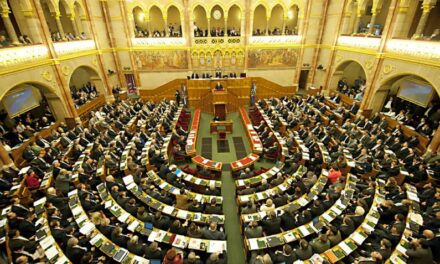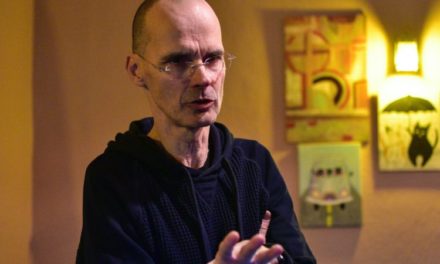Former director of the Soros Foundation: foreign journalists paint a distorted picture of Hungary. - brought by the Hungarian Nation. An unusually large set of documents with serious news value reached the editorial office of Magyar Nemzet from an unknown e-mail address. The materials - which the paper has begun to process - include, among others, several hours of Skype interviews with Andrej Nosko, who was previously one of the directors of the Open Society Foundations financed by György Soros. In the conversation, Nosko practically admitted that there is an unfair and biased campaign against Hungary and Poland.
According to the former director of the Soros Foundation:
Poland and Hungary are being flogged by the mainstream media without any real arguments.
The reasons for the popularity of the Hungarian government are not clearly seen.
One of the reasons for the distorted picture of Hungary is that the quality of the European media has fallen in the recent period, and there are far fewer foreign correspondents than before.
When Andrej Nosko's interlocutor was wondering why several Central and Eastern European states, including Hungary and Poland, have come to the fore of international media interest, the former director of OSF, funded by György Soros, spoke about the distortions in reporting on these countries. about countries.
I think, he said, according to the MN, that connecting the affairs of Hungary and Poland is not a very honest thing in itself. The two countries - like other states in the region - have their own problems, but they are all different. If we take Poland and Hungary, for example, we can see a completely different leadership style and economic structure, and the government's relationship with civil society is also different, he said.
According to Andrej Nosko, the fact that these states are taken under the same umbrella, and that the reports written about them are given special emphasis, is related to the fact that the quality of the European media has fallen in the recent period. - The problem can be expressed by the fact that there are far fewer foreign correspondents of the main media than before, who also provide information on the affairs of several countries. This also results in intellectual laziness in the mainstream media, which also played a central role in the development of the phenomenon outlined above. All of this leads to the fact that Poland and Hungary can be whipped very easily, without listing real arguments, Nosko declared. In other words, he added, these reports are biased.
I say this based on my own experience, as I knew several former correspondents who could neither speak nor read Hungarian. Therefore, the majority of them can only rely on secondary sources. And these secondary sources also strongly distort, among other things, in relation to the legitimacy of the Hungarian government, said the former director of the OSF. According to Andrej Nosko, for example, it is typically not mentioned that
the Hungarian cabinet is actually very popular among a significant part of society. "Instead, for example, they write that the government maintains its power by restricting freedom," emphasized one of the former leaders of the Open Society Foundation.
Source: magyarnemzet.hu
Featured image: Hír TV












